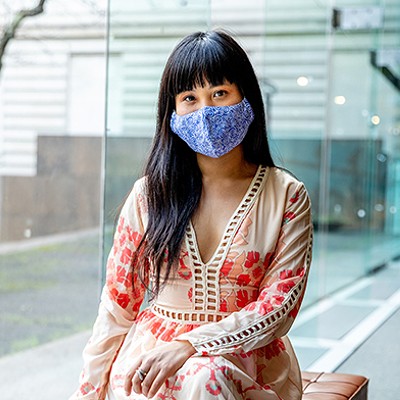Last May, while many were caught up in the presidential election, Amnesty International published a call for the decriminalization of sex work. The group joined other international organizations, like the United Nations and the World Health Organization, who have been working to raise awareness about the impact decriminalizing sex work would have on issues like sexual violence and public health.
“Sex workers are among the most vulnerable people in society and are routinely subjected to violence, discrimination and harassment,” said Margaret Huang, interim executive director of Amnesty International USA, in a statement. “They cannot turn to the police and have very few options for protection.
“Our goal is to protect the human rights of all people, particularly those who are most vulnerable, and decriminalizing sex work is one crucial step toward protecting the human rights of sex workers. This policy is based on years of research and consultation, including with current and former sex workers on both sides of the question of decriminalization. In the end, we’re outlining how governments can best protect people engaged in sex work from violence and discrimination.”
According to WHO, female sex workers are 13.5 percent more likely to have HIV than other women of reproductive age. WHO says that studies indicate decriminalizing sex work could lead to a 46 percent reduction in new HIV infections in sex workers over 10 years.
But based on regressive attitudes toward the sex trade in the United States — as evidenced by recent actions such as the shutdown of classifieds website Backpage.com’s adult section — decriminalization might be a long way off. For now there are organizations working in cities across the country to better serve the sex-worker community and ensure it has access to social services.
Pittsburgh is doing the same. Several local organizations provide no-judgment spaces where sex workers can receive services like counseling and health care. The problem? Many health and public-services organizations don’t market themselves to the sex-worker community. And often, the stigma associated with sex work stops workers from seeking them out.
“The biggest issue is [sex workers] not knowing where they can go and talk openly and honestly about the risk behaviors they’re engaging in for fear of judgment and being turned into the police,” says Lyndsey Sickler, Persad Center’s youth-services coordinator. “Nobody in the city that I know of actually advertises directly to sex workers, so that ends up being a big barrier.”
Persad is a human-services organization serving the LGBT community. Through working with Persad, Sickler has seen how the stigma placed on sex work prevents youth sex workers from obtaining necessary resources.
“Even though it’s 2017, Pittsburgh is way far behind in terms of sex-worker rights,” Sickler says. “People should stop demonizing sex work, because if there weren’t clients, they wouldn’t be doing it. Sex workers get a bad rap when really they’re providing a service just like everybody else.”
One common misconception Sickler sees is that sex work equals sex trafficking. In a 2005 report by the Sex Workers Project, 17 out of the 21 sex workers interviewed said they were not trafficked against their will.
“There should be more open communication. People should realize that some people do engage in this profession because they wish to,” says Sickler. “There’s a lot of different circumstances as to why somebody would choose to do sex work.
“I hope more conversation is had around this around the city. This has been an historical issue in the city and quite often very ignored.”
Sickler says those seeking more information about sex work can turn to organizations like Trans Pride Pittsburgh, Sisters United and Trans Youniting, which Sickler says are sex-positive and friendly community groups that actively work with people either currently engaged in sex work or those previously employed in the sex-work industry. But Sickler believes more sex-worker advocacy groups are necessary.
“I believe in creating spaces that are as judgment-free as possible and safe for all people. We’ve really done a disservice to people in the sex-working community because there is no community,” says Sickler. “When I talk to young people engaged in sex work I have personally witnessed their high anxiety, not knowing where they can turn, not knowing where they can get resources and not knowing who they can talk to.”
Among the resources Sickler points them to is the Pittsburgh AIDS Task Force, which provides HIV testing and other health services and counseling.
Jason Herring, PATF director of programs and communications, says the stigma associated with sex work prevents many served by PATF from disclosing that they are in the sex-worker industry. But he says that full disclosure helps PATF to ensure its clients are receiving the care they need.
“We really want people to be honest. We’re a harm-reduction facility, so at the heart of that, we don’t judge,” says Herring. “I’m not going to tell you what to do or what not to do. I’m here to help you be healthier. Part of that is knowing what you’re involved in that you may need help with. Everybody is usually worried about judgment.”
In addition to free HIV testing, PATF provides risk-mitigation counseling to each of its clients, advising them of safety precautions. Sex workers are often advised to take PrEP or Pre-Exposure Prophylaxis, an oral medication taken daily that reduces the chance of HIV transmission. In countries outside of the United States, when PrEP was first introduced, it was specifically marketed as a way to make the sex-work industry safer.
“The most important thing we tell sex workers is to get tested regularly. You should be wearing condoms and doing anything you can do to protect yourself,” Herring says. “On top of that, there are things you can do to prevent the transmission of HIV like PrEP.”
In order to ensure that more people take advantage of its services, PATF works to spread the word that it is a welcoming, nonjudgmental space. And Herring says current and former clients are PATF’s best source of referrals.
“If you’re here to help someone, you shouldn’t be judging them along the way,” Herring says. “Sometimes it is hard to get that word out. But that’s why when we work with people, we want them to be the ones to promote us. If they are comfortable with us, if they trust us, then their word counts more than any flier. If they have friends or colleagues who are engaging in the same activities, then we want them to feel comfortable going out and letting them know we can help.”
Ensuring that people feel comfortable with PATF is integral to the group’s success because it recommends that sex workers, or others engaging in frequent high-risk sexual activity, return to be tested on a regular basis.
“If they’re not comfortable in the experience, if they don’t feel accepted, if they don’t feel like you’re taking them seriously and not judging them, they’re less likely to come in again, much less every three months,” Herring says. “More times than not, people come and they’re really apprehensive, but then they see how easy it is. I don’t think people don’t seek help because they don’t care about themselves. I think it’s more that stigma. Stigma is a very real thing and it has very real consequences.”
Herring says he hopes cities like Pittsburgh can reduce the stigma associated with sex work in order to ensure a vulnerable segment of the population isn’t missing out on much-needed resources.
“The most important thing we can do is to realize stigma is bad, and if you are the person making those judgments, you’re the one perpetuating those stigmas,” Herring says. “The best thing you can do is to be understanding and to be a helper.”


















